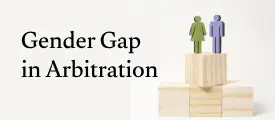By Anuradha Gandhi and Rachita Thakur
Introduction
On the occasion of the International Arbitration Day on October 07, 2023, renowned Supreme Court Judge, Hon’ble Justice Hima Kohli, talked about the prominence of institutional arbitration in India and even globally. Speaking about the historical background and significance of arbitration, she went in to talk about how arbitration has gained prominence recently only. The reason for this prominence of arbitration as dispute resolution was attributed to as its dynamicity and flexibility to develop, adapt and upgrade to meet the needs of its users.
Hon’ble Justice Kohli also augmented the flavors of arbitration in Asia. Arbitration hubs and institutions in Asia have reached new heights in their growth and popularity recordings stellar rankings and ever growing number in case filings. Hon’ble Justice Kohli even mentioned about the growth of arbitration in India and stated that arbitration will become primary of mode of dispute resolution when this specialized bar will work along with leading arbitration institutions. It was further pointed by Hon’ble Justice Kohli that Attorney General of India, Mr. R. Venkataramani in a conference organized by all India Arbitration Centre (IIAC) mentioned about creation of All India Arbitration and that the step was in a right direction.
Gender Gap and Diversity
Moving on, Hon’ble Justice Kohli expressed her concerns regarding the lack of diversity, including gender diversity amongst international arbitrators. She stated that the gender gap in arbitrators was essential for promoting inclusivity and fairness in dispute resolution.
Cross-Institutional Task Force on Gender Diversity in Arbitral Proceedings
Hon’ble Justice Kohli in her address referred to the report on Cross-Institutional Task Force on Gender Diversity in Arbitral Proceedings (hereinafter referred to as the “Report”) that governed the International Council for Commercial Arbitration. The Report summarized data regarding gender diversity by analyzing the appointments of female arbitrators and also identified opportunities and best practices for promoting gender diversity in international arbitration.
The Report highlighted that before the year 2015, women were miniscule fraction of arbitrators and accounted for mere five women that is 3.5% in the population of 145 investment treaty arbitrators and there were no tribunals composed of two or more women. However there has been significant improvement between 2015 and 2021 and the percentage of women appointed as arbitrators has nearly doubled from 12.6% to 26.1%.
Gender Gap – A multi-dimensional concept
Gender gap has surfaced over decades and still is one of the major concerns that shapes women’s professional as well as the personal profiles. Gender gap issues include low representation of women on financial and professional front along with deeply rooted wage inequality between men and women.
Addressing the issues brought forth by gender gap, the Harvard Economic Historian, Claudia Goldin has won the 2023 Nobel Economics prize for her work exposing gender gap. Claudia Goldin in her book ‘Understanding the Gender Gap: An Economic History of American Women’ examined the roots of difference between men and women in terms of what they do and how much they get remunerated. That is to say, understanding the root cause of gender gap!
Ironically, it is illegal across the globe for employers to discriminate between employees on the basis of gender, a large number of women are still marginalized to the core because of their gender. The work has revealed that though there has been progress in narrowing the gap over the past decades however, it is not likely to fully close any time soon.
India’s ranking in Gender Gap Report 2023
India was ranked at 127 out of 146 countries in terms of gender parity rising above from 135th in 2022. Though India has attained parity across sectors including education and political empowerment. India has closed at 64.3 per cent of the overall gender gap. The Gender Gap Report underlined that India has only reached 36.7 per cent parity in terms of economic participation and opportunity. While Iceland remains the most gender equal country in the world for the 14th consecutive time, India’s neighbor, Bangladesh has secured 59th position in the list.1
Related Posts


